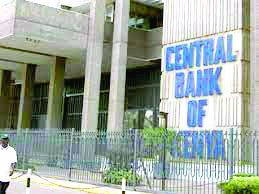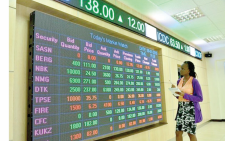SMEs embrace alternative financing on costlier loans

Credit demand appears to be drying up for Kenya’s small businesses, as commercial banks increase interest rates across board thereby shrinking access to loanable funds.
Most banks and financial institutions have adjusted their loan interest rates since the start of the year to reflect Central Bank of Kenya (CBK) base lending rate.
The regulator’s Monetary Policy Committee (MPC) met in January and retained its base lending at 8.75 per cent to hedge against rising inflation and global risks.
While banks justify the move to tighten borrowing terms that has effectively triggered the rise in prices of loans and mortgages exponentially, arguing it is to guard against the unfavourable economic outlook, small businesses are hurting.
The squeezed cash supply in the banking system has now seen small and medium enterprises (SMEs) turn to “goodwill” borrowing to remain buoyant.
An Africa MSME Pulse Survey Report 2023 by GeoPoll, a mobile-based research solutions provider, says a number of struggling small businesses are increasingly turning to friends and family for informal loans.
“Access to formal credit for small businesses remains a challenge, with only Kenya having a sizable number of businesses that have accessed bank loans and organised savings and credit co-operatives (Saccos),” it says.
Informal loans
The Africa MSME Pulse survey which expanded in 2023 to Ethiopia in addition to Kenya, Nigeria, and South Africa observed that for the most part, businesses rely on friends and family for informal loans. “Twenty-three per cent overall say they have been denied a loan in the past,” reads the report, which found that only 26 per cent of small traders had access to bank loans.
Similarly, the report found that government funds such as consolidated fund, the Equalisation Fund and the Contingencies Fund managed by the National Treasury, are also drying up, with just seven per cent of the 110 businesses who took part in the poll, benefitting from such provisions.
Independent investors like the non-governmental organisations (NGOs) have also limited access to their loans.
The impact, according to the survey, has left several businesses, majority of which are also facing other challenges like high taxation, expensive mobile lenders and shylocks also known as loan sharks with the latter offering loans at high interest rates and generally operate outside the law.
Digital lending, for instance, is projected to emerge stronger in the post pandemic era, according to industry trends by Digital Lenders Association of Kenya (DLAK). They attribute the likely surge in usage to the growing number of Kenyans choosing to use such platforms for their daily transactions.
Economist Kamau Macharia says the supply of loanable funds is based on savings while the demand for loanable funds is based on borrowing.
“The interaction between the supply of savings and the demand for loans determines the real interest rate and how much is loaned out,” said Macharia, who said challenges like high unemployment rate could also be a factor.
Kenya’s unemployment rate is expected to grow by 7.5 per cent by the end of next month, according to forecasts by Trading Economics.









